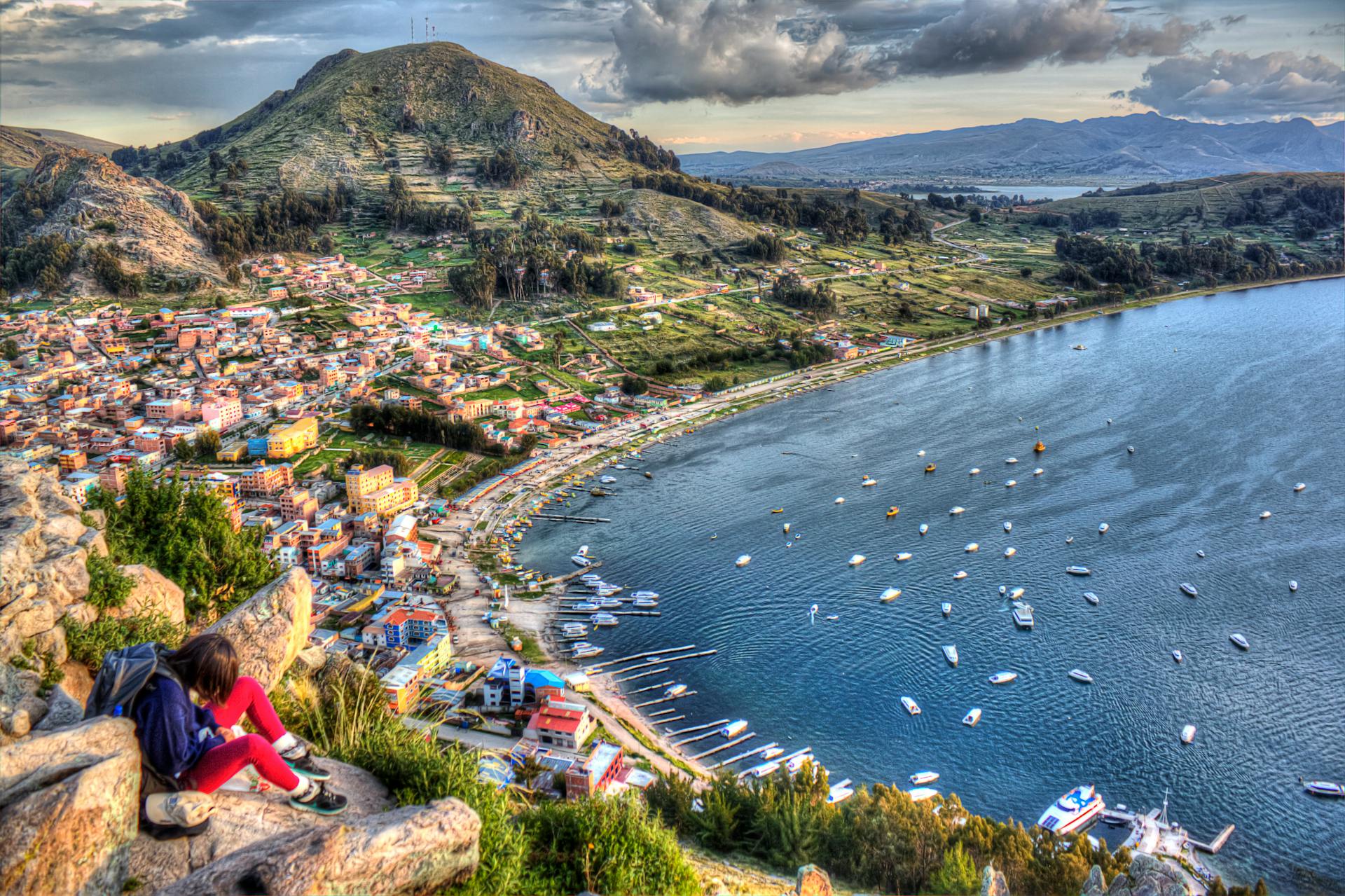The digital nomad lifestyle offers unparalleled freedom, allowing remote workers to explore new countries while maintaining their careers. One of the most exciting and under-explored destinations for digital nomads is Bolivia. Nestled in the heart of South America, Bolivia offers rich culture, stunning landscapes, and affordable living. However, like any destination, being a Bolivia digital nomad comes with its set of challenges. In this guide, we’ll walk you through how to overcome those challenges and thrive in Bolivia, exploring the best cities for remote work, the tools you’ll need, and the cultural experiences that will make your digital nomad journey unforgettable.
1. The Allure of Bolivia for Digital Nomads
Before we dive into the challenges and solutions, it’s essential to understand why Bolivia is an appealing destination for digital nomads. Bolivia has a vibrant culture and diverse geography that ranges from the Andes Mountains to the Amazon rainforest. Cities like La Paz and Santa Cruz offer a blend of modern amenities and traditional charm, making them ideal for remote work. Bolivia is also one of the most affordable destinations in South America, offering an excellent cost of living for digital nomads on a budget.
Moreover, Bolivia is home to a growing community of digital nomads and entrepreneurs. Co-working spaces are beginning to pop up, providing the necessary infrastructure for remote workers to get things done. Whether you’re looking for an urban environment or a tranquil rural setting to focus on your projects, Bolivia offers a variety of options for your digital nomad lifestyle.
2. The Challenges of Being a Bolivia Digital Nomad
While Bolivia has much to offer, being a Bolivia digital nomad also comes with challenges that you’ll need to address to ensure a smooth experience. These challenges include:
- Internet Connectivity Issues
- Language Barriers
- Cultural Differences
- Safety Concerns
- Visa and Legal Issues
Let’s explore each of these challenges in detail and discuss how to overcome them.
3. Challenge #1: Internet Connectivity Digital Issues
One of the most common challenges for digital nomads is reliable internet access. In Bolivia, the quality of internet connections can vary significantly depending on the region, with urban areas generally offering better connectivity than rural areas. As a Bolivia digital nomad, you’ll need to plan accordingly to ensure you can work uninterrupted.
Our advice: To tackle this issue, it’s advisable to stay in larger cities like La Paz, Santa Cruz, or Cochabamba, where internet infrastructure is more developed. Many co-working spaces in these cities offer high-speed internet, making them ideal for remote work. Additionally, consider investing in a local SIM card with data if you need internet on the go. Services like Tigo and Viva provide 4G data plans that are relatively affordable and widely available.
For those who want to work from rural areas or smaller towns, you may want to check the internet speed and availability in advance. Sometimes, the connection may not be reliable enough for video calls or large file uploads, so it’s important to be flexible with your work style and use offline tools when necessary.
4. Challenge #2: Language Barriers
Spanish is the official language of Bolivia, and while English is spoken in tourist areas, many Bolivians may not be fluent. As a Bolivia digital nomad, especially if you plan to live and work in smaller towns or interact with locals, a basic understanding of Spanish can go a long way.
Solution: To overcome the language barrier, invest time in learning Spanish before you arrive or during your stay. There are many language apps such as Duolingo, Babbel, and Memrise that can help you build a foundation. Alternatively, you can take local language classes in Bolivia. Many cities offer affordable language schools and private tutors, which will help you immerse yourself in the culture and navigate daily life more easily.
While speaking Spanish may not be required for your remote job, it will certainly enrich your experience in Bolivia, allowing you to connect with locals, explore beyond tourist areas, and understand Bolivia’s culture more deeply.
5. Challenge #3: Cultural Differences
Understanding and adapting to Bolivia’s cultural nuances can be a challenge, especially if you are accustomed to a more fast-paced or individualistic lifestyle. Bolivia has a rich indigenous culture with diverse traditions, and respecting these cultural norms is important for a smooth experience as a Bolivia digital nomad.
Solution: The key to navigating cultural differences is understanding and respect. Take the time to learn about Bolivian traditions, food, and history. Bolivians are known for their warmth and hospitality, and building meaningful connections with locals will enhance your time in the country.
Bolivian culture places a strong emphasis on family, community, and social gatherings. Understanding these values will help you integrate and avoid misunderstandings. Additionally, be aware that time in Bolivia may not always be as rigid as in Western countries, so expect a more relaxed attitude toward punctuality.
When working as a Bolivia digital nomad, you may also face different attitudes toward work and hierarchy. The pace of work in Bolivia can be slower compared to Western standards, so patience is essential when collaborating with local businesses or clients.
6. Challenge #4: Safety Concerns
While Bolivia is generally considered a safe country for travelers, like any destination, there are areas where crime rates are higher, particularly in larger cities or more tourist-heavy spots. As a Bolivia digital nomad, it’s important to be mindful of your safety and take precautions.
Solution: To stay safe, always research the areas where you plan to stay and work. Stick to well-populated neighborhoods, and avoid walking alone at night in unfamiliar areas. It’s advisable to keep your valuables secure, especially when using public transportation or in crowded places.
Additionally, familiarize yourself with common scams that target tourists and digital nomads. By staying informed, you’ll be able to avoid potential issues. Also, consider using co-working spaces or cafes with secure internet connections for added safety when working online.
7. Challenge #5: Visa and Legal Issues
As a digital nomad in Bolivia, you’ll need to navigate the country’s visa and immigration requirements. While Bolivia offers visa-free entry for many nationalities for up to 90 days, staying longer requires a tourist visa extension or a work visa, both of which have specific requirements.
Solution: Before you travel to Bolivia, research visa requirements based on your nationality and the duration of your stay. If you plan to stay longer than 90 days, you can apply for a visa extension or a different type of visa. Make sure to check with the Bolivian consulate or embassy for the most up-to-date information regarding visa applications and renewals.
In addition, while Bolivia does not have a specific visa for digital nomads, you can enter the country on a tourist visa and legally work remotely for your international clients. However, it’s important to avoid working for Bolivian companies or conducting business within the country without the proper work visa to avoid legal issues.
8. Final Thoughts
Becoming a Bolivia digital nomad offers incredible opportunities to explore one of South America’s most fascinating countries. With its rich culture, stunning landscapes, and affordable cost of living, Bolivia provides a unique backdrop for remote workers looking to live and work abroad.
To thrive as a digital nomad in Bolivia, it’s essential to be aware of the challenges, from internet connectivity to language barriers and cultural differences. By taking proactive steps to address these challenges—like learning Spanish, using local co-working spaces, and adapting to local customs—you’ll be well on your way to creating a fulfilling and successful remote work experience in Bolivia.
Embrace the adventure, and enjoy the many rewards that come with living as a Bolivia digital nomad!

